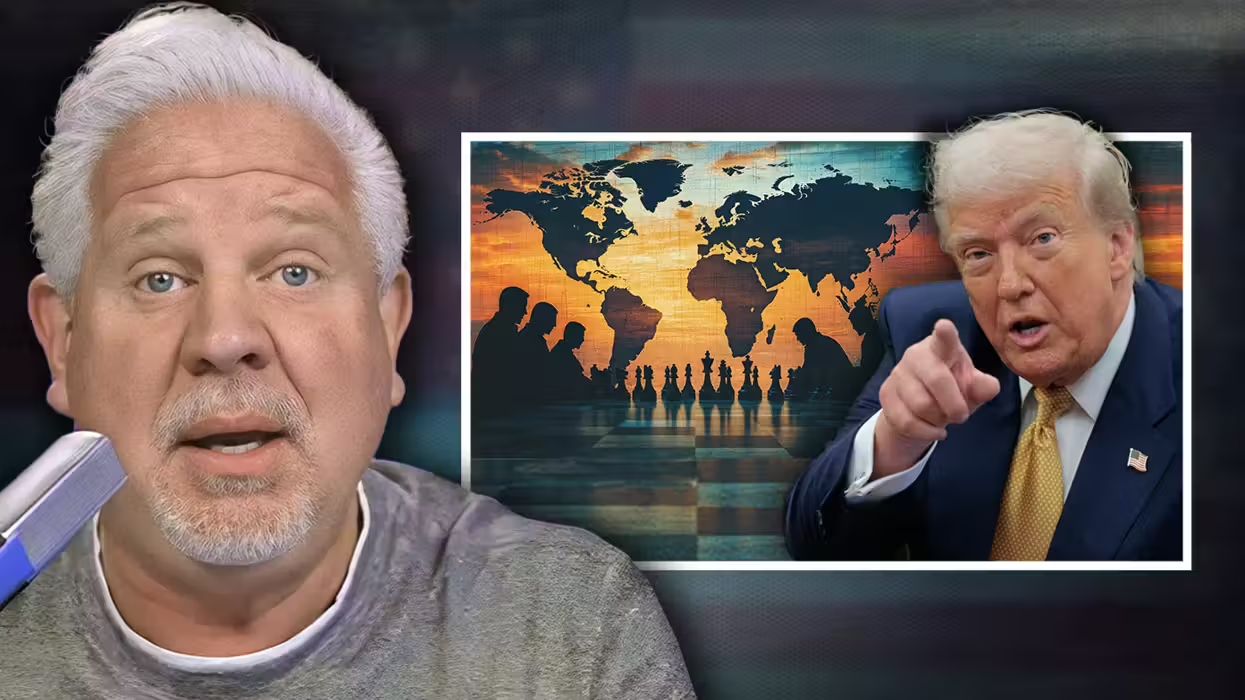
© 2025 Blaze Media LLC. All rights reserved.
Dems’ new voter ‘rights’ bill is great for felons and fraudsters, but bad for the Constitution
January 30, 2019
Tuesday’s House Judiciary Committee hearing on H.R. 1, otherwise known as the “For the People Act,” turned into a heated sparring match between Democrats, Republicans, and witnesses.
House Democrats are trying to sell the election overhaul legislation as an update on the 1965 Voting Rights Act, and Democratic leadership clearly thinks a lot of it, giving it symbolic status as the first bill of the 116th Congress. But it looks more like a “greatest hits” collection of Democrats’ biggest election gripes.
“The only common motivation running through the whole proposal seems to be this — Democrats searching for ways to give Washington politicians more control over what Americans say about them and how they get people elected,” Senate Majority Leader Mitch McConnell, R-Ky., said of the bill on the Senate floor Tuesday.
Given that the bill is probably dead on arrival in the Senate, the most it can achieve this session is to spark conversations about the voting system. Here’s what Democrats want to do.
One of the central features of the bill is restoring voting rights to felons (who tend to vote Democrat, by the way). Democratic politicians have pushed for measures like this in various states, and now House Democrats want to make it a reality in federal legislation.
“Not only is ex-offender disenfranchisement wrong and anti-democratic in and of itself, many of these laws were deliberately designed to entrench white supremacy,” read an opening statement from Chairman Jerry Nadler, D-N.Y.
Rep. Matt Gaetz, R-Fla., grilled one witness on specific instances of felons, including two convicted of voter intimidation, who would be put back on the voting rolls under the proposed bill. He also asked about the future voting of violent felons like a man who committed sex acts on a minor at knifepoint.
“I think that, like, there are some things you can do that are so bad — the degradation of people’s right to vote, intimidating people from voting, raping children,” Gaetz told the witness, “that probably surrenders your right to participate in those decisions in the future.”
And while the bill seeks to increase the voice of convicted felons in our electoral process, it seeks to restrict the speech of others through campaign finance regulations.
According to a memo from the Conservative Action Project, the legislation “would allow the Federal Election Commission to track and catalogue more of what Americans are saying, register even very small political donations, and make public those who donate to different charitable and nonprofit organizations.”
In turn, the memo continues, this would “subject private citizens to intimidation and harassment for their private and political beliefs, far broader than what was done in the IRS targeting scandal in 2013.”
The legislation also takes aim at the states’ constitutional power to run their own elections by reviving a process known as “preclearance,” which was immobilized by the Supreme Court’s 2013 decision in Shelby County v. Holder. The preclearance process requires states to get the federal government’s permission for almost any change they make to election process, whether it’s moving a polling place or implementing a voter ID law.
Furthermore, the bill also eliminates political “gerrymandering” by forcing states to draw future congressional districts via independent redistricting commissions. Redistricting done by state elected officials has long been one of the Left’s biggest scapegoats in the election process.
As unpopular as partisan redistricting can be, there are still good reasons to keep the question in the political arena rather than put it into the realm of the unelected and unaccountable. CR’s Daniel Horowitz explains it this way:
“After every decennial redrawing of the maps, a number of states run by either party tend to get carried away with their power to draw the boundaries and create districts that fail to respect the geographical, demographic, or cultural integrity of the region. The reality is that both parties engage in gerrymandering. Yes, it is unfair. But what should be the remedy? Using the electoral process to punish these troublemakers or having the unelected judges redraw even worse maps?”
Critics also say that the act would make it easier to commit voter fraud nationwide. In his prepared testimony, Public Interest Legal Foundation President J. Christian Adams warns that the bill’s vague language surrounding voter registration “could jeopardize very important voter registration safeguards.” Furthermore, key provisions of the bill would force states to expand automatic voter registration (aka “motor voter”) and same-day registration, which make things easier for potential fraudsters and even allows non-citizens to vote in our elections.
Given provisions like these, it’s no wonder why Republicans are speaking out so vociferously against the bill.
“This bill works like the Chicago-style Democrat machine,” House Freedom Caucus Member Ken Buck, R-Colo., said of the proposed legislation.
“If you’re earnestly for the people, if you want everyday citizens to have the power that only comes through their ability to hold officials accountable at the ballot box, you’d have to send this bill back to the drafting table,” reads a statement from Judiciary Committee Ranking Member Doug Collins, R-Ga., because H.R. 1 “throws a strong left hook at the Constitution and expects voters to take it on the chin.”
#mc_embed_signup{background:#fff; clear:left; font:14px}
/* Add your own MailChimp form style overrides in your site stylesheet or in this style block.
We recommend moving this block and the preceding CSS link to the HEAD of your HTML file. */
Want to leave a tip?
We answer to you. Help keep our content free of advertisers and big tech censorship by leaving a tip today.
Want to join the conversation?
Already a subscriber?
more stories
Sign up for the Blaze newsletter
By signing up, you agree to our Privacy Policy and Terms of Use, and agree to receive content that may sometimes include advertisements. You may opt out at any time.
Related Content
© 2025 Blaze Media LLC. All rights reserved.
Get the stories that matter most delivered directly to your inbox.
By signing up, you agree to our Privacy Policy and Terms of Use, and agree to receive content that may sometimes include advertisements. You may opt out at any time.






